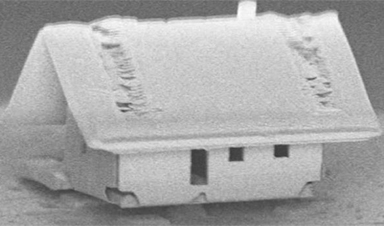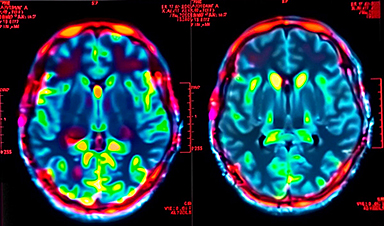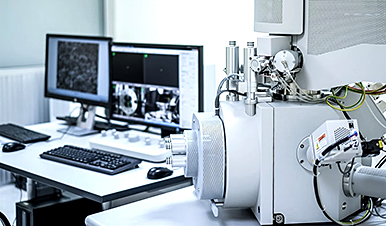Scientists have assembled the world’s smallest house by using a combination of robotics and nanotechnology. The micro-house even has a door that a house mite can fit through.
The house has been devised, according to Engadget, as a proof-of-concept study from a nanorobotics team based at the Femto-ST Institute in Besancon, France. The researchers successfully assembled a new microbotics system termed the μRobotex nanofactory. By deploying tiny robots the researchers can construct microstructures within a large vacuum chamber. Within this they can fix components onto optical fiber tips at a level of nanometer accuracy.
The idea behind the microhouse construction was in order to demonstrate that the latest advances in optical sensing technologies can be used to manipulate ion guns (via gas injection), electron beams and finely controlled robotic piloting, so that a variety of different constructs can be rendered. As an example of the complexity and tiny scale of operations, the ion gun focuses on an area only 300 micrometers by 300 micrometers so that it can to fire ions onto the fiber tip and silica membrane.
This forms part of the area of lab-on-fiber technologies. In the early stages of this technology there were no robotic actuators available for for nanoassembly, which limited what engineers could achieve in terms of creating microstructures at the nano-scale. A recent advance in miniaturtized-sensing elements has addressed this. These sensing elements can be fitted onto fiber tips, allowing scientists to manipulate different components.
The technology allows enables scientists to insert optical fibers as thin as a strand of human hair into previously inaccessible locations such as jet engines, to detect radiation levels, or into human blood vessels to detect viral particles.
Image Credit: FEMTO-ST Institute
News This Week
Does COVID increase the risk of Alzheimer’s disease?
Scientists discover that even mild COVID-19 can alter brain proteins linked to Alzheimer’s disease, potentially increasing dementia risk—raising urgent public health concerns. A recent study published in the journal Nature Medicine investigated whether both mild and [...]
New MRI Study Reveals How Cannabis Alters Brain Activity and Weakens Memory
A massive new study sheds light on how cannabis affects the brain, particularly during cognitive tasks. Researchers analyzed over 1,000 young adults and found that both heavy lifetime use and recent cannabis consumption significantly reduced brain [...]
How to Assess Nanotoxicity: Key Methods and Protocols
With their high surface area and enhanced physicochemical properties, nanomaterials play a critical role in drug delivery, consumer products, and environmental technologies. However, their nanoscale dimensions enable interactions with cellular components in complex and [...]
Nanotech drug delivery shows lasting benefits, reducing need for repeat surgeries
A nanotechnology-based drug delivery system developed at UVA Health to save patients from repeated surgeries has proved to have unexpectedly long-lasting benefits in lab tests – a promising sign for its potential to help human patients. [...]
Scientists Just Found DNA’s Building Blocks in Asteroid Bennu – Could This Explain Life’s Origins?
Japanese scientists detected all five nucleobases — building blocks of DNA and RNA — in samples returned from asteroid Bennu by NASA’s OSIRIS-REx mission. NASA’s OSIRIS-REx mission brought back 121.6 grams of asteroid Bennu, unveiling nitrogen-rich organic matter, including DNA’s essential [...]
AI-Designed Proteins – Unlike Any Found in Nature – Revolutionize Snakebite Treatment
Scientists have pioneered a groundbreaking method to combat snake venom using newly designed proteins, offering hope for more effective, accessible, and affordable antivenom solutions. By utilizing advanced computational techniques and deep learning, this innovative [...]
New nanosystem offers hope for improved diagnosis and treatment of tongue cancer
A pioneering study has unveiled the Au-HN-1 nanosystem, a cutting-edge approach that promises to transform the diagnosis and treatment of tongue squamous cell carcinoma (TSCC). By harnessing gold nanoparticles coupled with the HN-1 peptide, [...]
Global Trust in Science Is Stronger Than Expected – What’s Next?
A landmark global survey conducted across 68 countries has found that public trust in scientists remains robust, with significant support for their active involvement in societal and political matters. The study highlights the public’s [...]















Leave A Comment